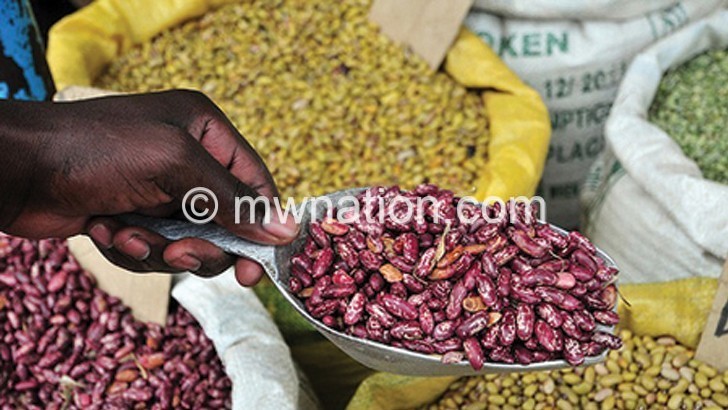RBM sets k440bn target for EDF
The Reserve Bank of Malawi (RBM) has set ambitious targets for its departments, among them, tasking the Export Development Fund (EDF) to generate $600 million (K440 billion) in export earnings this year.
EDF, a financing institution for export business, was formed by RBM in 2012 but is now incorporated as a private company to develop an efficient and transparent export development and providing a guarantee cover to export enterprises whose concepts are deemed viable.
On Friday, the central bank outlined its ambitious plans that also includes maintaining a single digit inflation rate (currently the rate is at 7.7 percent) and import cover above three months, which is a rule of thumb, and increasing diaspora remittances from $38 million (K28 billion) to $200 million (K147 billion).

The 2018 Strategic Plan is also aimed at helping RBM to eliminate transfer pricing and illegal externalisation of foreign exchange in partnership with Malawi Revenue Authority (MRA), the Malawi Police Service, Immigration Department and other agencies.
RBM Governor Dalitso Kabambe, in an interview on the sideline of the launch, touted the plan for being consistent with the central bank’s strategic objective of ensuring that there is price and financial stability in the country.
He said: “As a central bank, we have set for ourselves ambitious targets which are tough but achievable. If we do not experience any other shocks in the agriculture sector or increase of oil prices on the global market, we will achieve them.
“To show our seriousness I have signed commitments with all directors who will be responsible to ensure that these targets are met.”
With regards to deepening the financial market, the central bank wants to increase the number of listed companies on the Malawi Stock Exchange (MSE) by five from the current 13, implement the automated trading system and upgrade the central security depository.
The central bank also wants to increase the usage of electronic payments from 13 percent to 25 percent through the full implementation of the National Taskforce on Electronic Payments (Ntep) roadmap and increase allocation of pension funds in infrastructure projects from seven percent to 17 percent.
“Through the same targets, we also want to attract at least three prospective bank investors to establish banking services, including the establishment of the development bank in partnership with the Ministry of Finance, Economic Planning and Development,” he said.
Kabambe also wants to see RBM ensuring a sound, robust and resilient financial system which will see RBM conclude preparation and processing of two financial sector laws and 29 directives.
In its Financial Stability Report 2017, RBM gave banks a clean bill of health, saying the banking sector remained stable with adequate capital position, liquidity and it was profitable, despite that asset quality deteriorated.
EDF managing director Rodrick Wiyo welcomed the challenge from RBM, saying the $600 million target is realistic as they have already embarked on several projects with various stakeholders including farmers.
“We have secured markets for beans within the region. As regards rice, we are looking for more markets and by working with stakeholders such as Ntalimanja Holdings Limited and AHL Commodities Exchange, we can export more rice within Africa and beyond,” he said.





